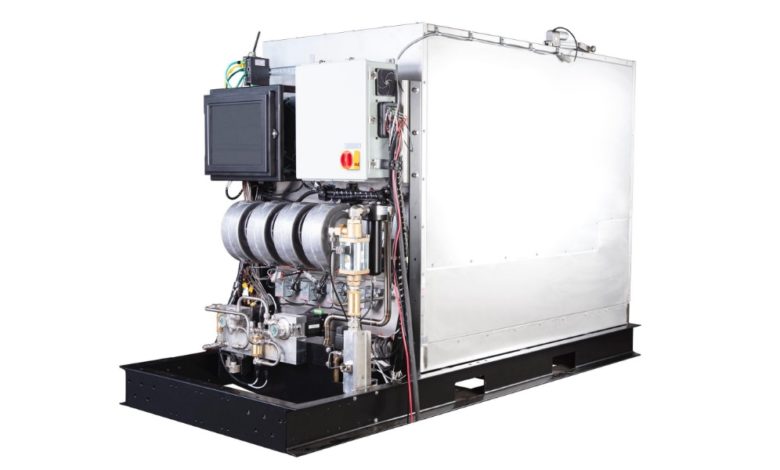A Californian company has debuted technology that requires no major retrofit to make today’s bunker fuel guzzling generation of ships switch to hydrogen.
RIX Industries is touting its methanol-to-hydrogen solution as a way to future proof existing vessels from incoming green legislation.
With RIX technology, hydrogen is not stored but rather created as needed through a reforming process, allowing the methanol-to-hydrogen propulsion strategy to be distributed across a vessel’s infrastructure.
For existing vessels, no major retrofit of ship infrastructure is necessary to deploy hydrogen-on-demand, the company claims. With proper cleaning, tanks currently used for diesel storage can instead store liquid methanol at ambient temperatures. Cryogenics and high-pressure storage are not required.
Methanol-to-hydrogen conversion occurs within a self-contained system creating a steady stream of hydrogen. Systems are modular, scalable, and commercially available – and when combined with PEM fuel cells can support power needs ranging from 10kW to MW applications.
“Understanding the options for clean, green propulsion may only be the starting point in the goal of reduced emissions. It is a challenge compounded by the potential for long-term impact on ship architecture,” said Bryan Reid, chief sales officer, RIX Industries. “While hydrogen is an appealing answer industry-wide, its deployment is deeply complicated by cryogenic temperature requirements and/or high-volume, high-pressure storage. However, the ability to generate hydrogen on-demand is breaking through these barriers, tapping into safe, convenient methanol to eliminate complexity and achieve decarbonisation.”
With high-pressure capabilities no longer necessary, tank size and shape can be more flexible in nature. Methanol tanks can be incorporated within any unique void in a ship’s structure – custom-fit to make use of otherwise unusable space. Looking at newbuilds, RIX has suggested that instead of a traditional engine room, new ship designs may include a reformer area featuring a primary methanol-to-hydrogen system. Capacity can then be extended by capitalising on small spaces across the ship for additional reformers and methanol tanks.
Source: Splash247
Tags: Green Fuel, Hydrogen, Methanol, Propulsion, RIX Industries



Recent Posts
Chartered Speed expands its electric mobility footprint in Arunachal Pradesh
PSA International joins Global Centre For Maritime Decarbonisation as a strategic partner
MPA and NYK Group Advance Collaborative Efforts on Maritime Autonomous Surface Ship Trials
BIMCO drafts new clause to support biofuel use in time charters
Global Maritime experts attended India@Nor-Shipping – Maritime Partnership for a shared & sustainable future
India-Norway Dialogue Anchors on Sustainable Maritime Development
Sea cruise ships can now connect to shore power in Amsterdam
Corvus Energy partners with HD Hyundai Mipo for AiP on new green product tanker design.